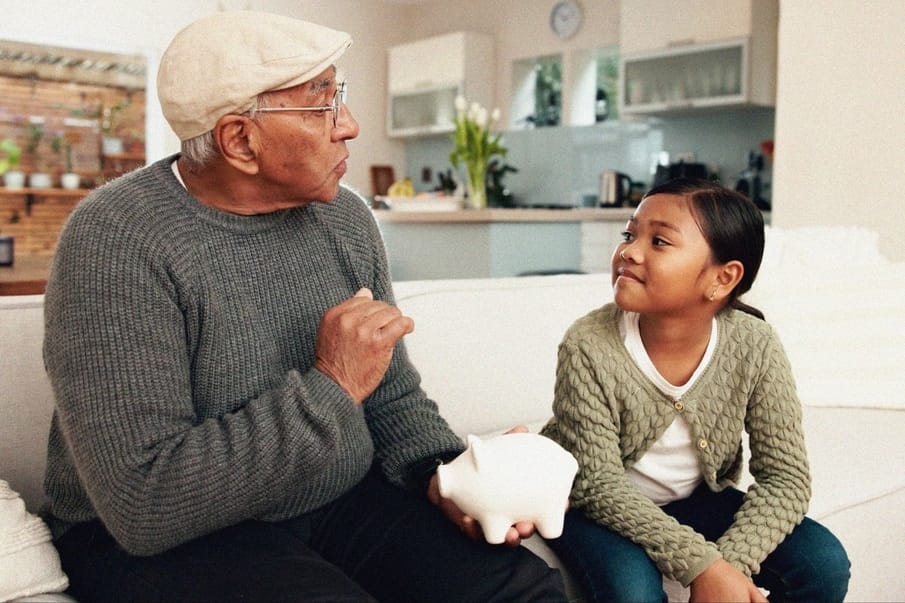Considering teaching your children at home instead of traditional schooling? We’re chalking up the essentials you need to know before you make the decision…
Conventional schooling – with its rigid timetables, national curriculum, and strict environment – isn’t for everyone. So, for many, home education is an attractive option. You may picture happy days of discovery, learning natural history on a woodland walk, playing maths games in the garden, or turning a baking session into a science lesson. Many families had a taste of it during the Covid-19 lockdowns (with mixed results), but thousands have taken a permanent leap, and the numbers are rising.
According to the latest figures, almost 112,000 children are in ‘elective home education’ (EHE), which is up from 92,000 the previous autumn term. But is it right for your family?
All UK children from the age of five must be in full-time education, and this can include EHE. But legalities aside, what else is involved? From practical concerns to emotional challenges, here are five key things to consider.
Do you have the time?
Home schooling means a certain freedom in your schedule. You can holiday during off-peak times, take days off without fines or permission, and plan lessons around when your child performs at their best. But, regardless of the exact hours, it still involves a considerable amount of time.
Children attending school have around five hours of tuition a day for 190 term days a year. Home schooling need not mirror this, but it’s unlikely to work alongside a full-time job. Do you need to go part-time, or leave work altogether? Can you share schooling responsibilities with another parent or carer?
Can you afford to homeschool?
For workers, adjusting your career around EHE can have major financial implications. You’ll not only need to be realistic about the income level your family can live on, but home schooling itself has costs attached.
State schools cover various costs, which can include everything from teaching to resources, equipment, school lunches (for infants), trips, and fees for national exams (depending on the subject and awarding body, this can range from around £50–100 per GCSE, and around £100–200 for A-levels). There is no funding available for home educators, so it’s advisable to plan costs for a typical year of home schooling, and ask: ‘Can we afford it?’
Will your child be lonely?
While you get to spend more time together as a family, home schooling is very different to mixing with hundreds of other children and adults in a typical school setting. Without this regular contact, some parents fear that their child may get lonely, or fall behind in their social development.
“In a traditional school environment, children are exposed to a wide range of social experiences that help them develop essential interpersonal skills, such as interacting with peers from different backgrounds, negotiating conflict, collaborating, building friendships, and relating to a variety of adults. These experiences are harder to replicate at home,” says Hendrix Hammond, psychotherapist and spokesperson for the UK Council for Psychotherapy.
He recommends joining clubs and connecting with other home schooling families to build friendships, and help grow your child’s confidence and emotional literacy. Home education charity Education Otherwise can help you find home schooling families in your area.

What will happen to family dynamics?
Adding the role of ‘teacher’ into the parent-child relationship may require some adjustment, explains Hendrix: “When home educating, it’s important to recognise that you’re creating a new kind of relationship and identity within the family, and this shift can bring challenges. Children may resist the feeling of constantly being ‘taught’ at home, especially in an environment that has previously felt relaxed and familiar.”
He recommends establishing clear boundaries between learning time and family time. Can you designate a specific time or place for study, and communicate expectations for that space? “This can help maintain emotional balance within the home, and reduces the risk of conflict or confusion around roles,” he adds.
Are you a good teacher?
It’s one thing to show your child how to tie their shoelaces and help them to learn read, but as the person responsible for their entire education – enough to prepare them for national exams and potentially further education – do you feel confident?
To home school, you don’t need specialist qualifications, and it’s not compulsory to teach the national curriculum. But, being a good teacher involves more than reading textbooks – it’s about coaxing the best out of your child, being patient and encouraging, and staying motivated to cover subjects that they (or you) may find boring.


Comments